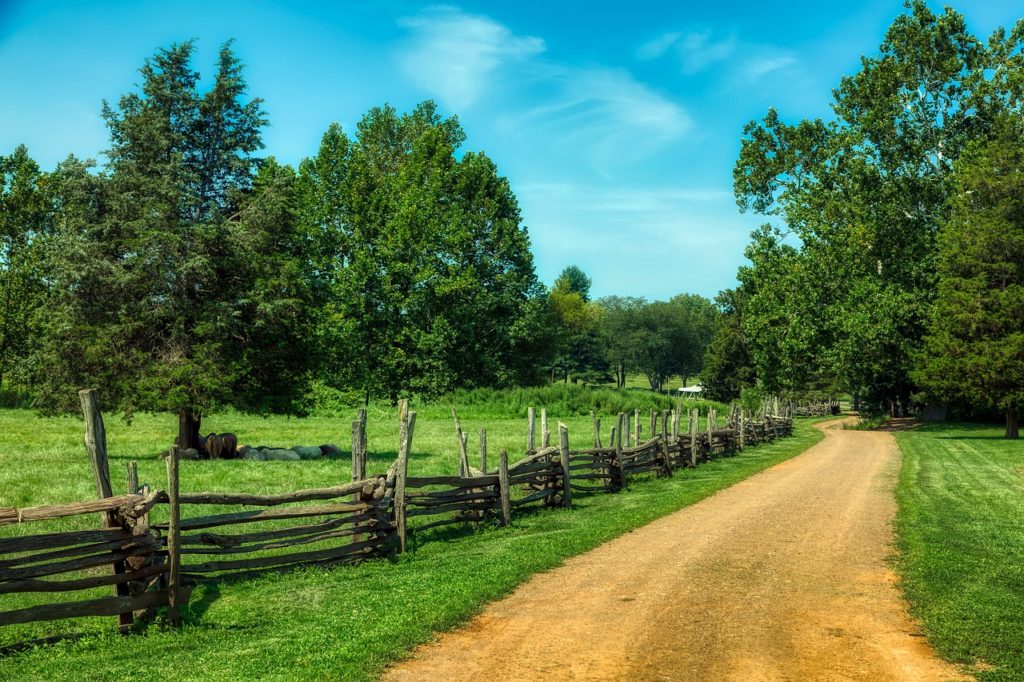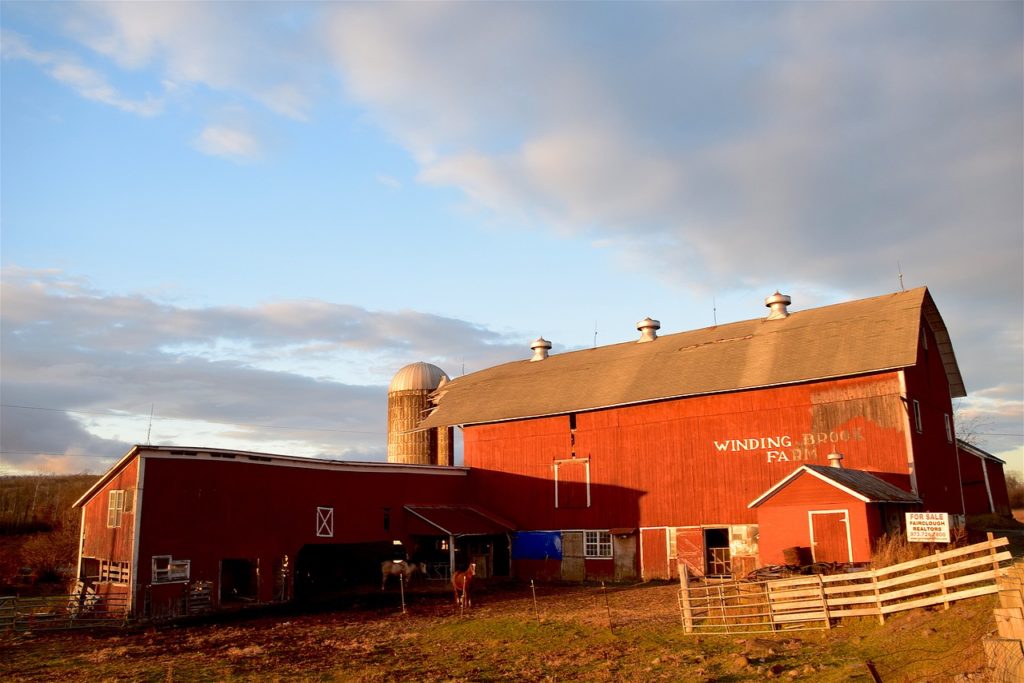How to start homesteading in New Jersey

Like any state, homesteading in New Jersey comes with its benefits and drawbacks. In many ways, the Garden State lives up to its name, with a fairly hospitable climate for growing a wide range of crops and an extensive network of groups and organizations to help farmers advocate for themselves and network with one another.
Still, New Jersey is densely-populated, so land can be prohibitively expensive and farmers face vandalism in theft in the agriculture scene, despite the state’s attempts to address it.
If you are still wondering whether the Garden State is right for you, here are the basics of how to start homesteading in New Jersey.
Buying farmland in New Jersey
Farmland in New Jersey is the second most expensive in the nation, rivaled only by Rhode Island. According to 2019 data from United States Department of Agriculture (USDA), the average cost of farm real estate in New Jersey is $13,500 per acre, compared to the national average of $3,160. The average The USDA’s 2018 State Agriculture Overview found that New Jersey has 750,000 acres of farmland spread out over 9,900 farms, with an average farm size of 76 acres.
The New Jersey Department of Agriculture does not have a loan program for purchasing farm real estate or providing farm-operating capital, but will respond to inquiries on the availability of financing from federal, state, and commercial lending institutions for agricultural loans.
Working farms must register as a business with the State of New Jersey at least 15 business days prior to opening. If you plan to collect sales tax, remitting use tax or using New Jersey Exemption Certificates, the State of New Jersey will send you a New Jersey Certificate of Authority for sales tax, which must be displayed at your place of business.
Trespass and vandalism — including theft of products, trash dumping, injury to livestock and damage to structures — is a significant problem in New Jersey agriculture. The rights of farmland owners and rural residents alike are protected by stiffer laws and penalties aimed at curbing such violations.
Growing crops in New Jersey
New Jersey is divided into two primary hardiness zones: zone 6 and zone 7. The zones are relatively mild and afford many opportunities to plant different crops.
New Jersey is a major producer of asparagus, bell peppers, eggplant, endive, lettuce and spinach. Cabbages, snap peas and corn also grow well in the state. The state’s most valuable fruit crops are blueberries — New Jersey’s state fruit, and its most valuable agricultural product — and cranberries. Apples, peaches and strawberries are also prominent New Jersey crops.
New Jersey’s state soil is the Downer soil, which is prevalent throughout much of the state. Downer soils occur on 291,319 acres in New Jersey, dominantly in the 11 counties of southern New Jersey. Most Downer soils are used as woodlands, but the loamy, well-drained soil are also ideal for agriculture. About 40 percent of New Jersey’s Downer soil is used to cultivate crops.

Raising animals in New Jersey
There are a few livestock auctions that still take regularly place in New Jersey, including the Hackettstown Livestock Auction and the Cedar Lane Livestock Auction, which both take place every Tuesday.
According to New Jersey Fence Laws, if horses, cattle or sheep escape from their fence, the owner of the animals shall pay for any damages incurred. Any party that finds the animal may take and impound stray livestock in his field or other enclosure for 24 hours. If the animals are not redeemed within 24 hours, that person can take the livestock to the public pound of the township, where the poundkeeper shall receive and keep the animals until the damages so certified and the charges of conveying and pounding are paid.
New Jersey Fence Laws protect livestock owners from vandalism as well. Any person who cuts, breaks, pulls down or destroys a fenced area containing livestock will be liable to pay for those damages to the aggrieved farmer, plus a penalty.
The New Jersey Division of Animal Health maintains disease control programs to protect the health and well-being of the state’s livestock. They conduct epidemiological investigations of livestock diseases, operate an animal health diagnostic laboratory, manage two contagious equine metritis quarantine facilities for imported horses and maintain an aggressive livestock welfare program.
In 2009, the New Jersey Department of Agriculture adopted regulations that require all livestock farm owners to responsibly manage their animals’ waste. According to the regulations, agricultural animal operations cannot allow animals to have uncontrolled access to state waters, manure storage areas shall be located at least 100 feet from state waters and dead animals shall not be disposed of without first contacting the State Veterinarian.
The state of New Jersey also has state-enforced standards regarding the humane treatment of livestock, including feeding, watering, keeping and marketing a variety of livestock, from poultry and rabbits to bovines and equines.
Selling food in New Jersey
According to the New Jersey Farmers Markets Directory, there are 160 farmers markets in the state.
In New Jersey, no license is required to sell whole, uncut fresh fruits and vegetables at a farmers’ market or on site or at a roadside stand.
Processed food must be prepared in a licensed and inspected commercial kitchen. Food prepared in a private home cannot be sold for human consumption, but a private farm can have an approved, inspected commercial kitchen located on the property separate from the private home kitchen. The product label for processed food should contain the name and address of seller or processor; name of product; ingredient list in descending order; and the net weight of the product.
New Jersey is the only state where it is illegal to sell cookies, cakes and muffins made in a home kitchen. Unlike in many other states where cottage food producers can license their home kitchens for retail sale, in order to sell baked goods in New Jersey, you must either build a licensed “retail food establishment” separate from your home kitchen or rent a commercial kitchen. Fines for selling home-baked goods are as high as $1,000.
According to the New Jersey Department of Agriculture, eggs for sale should be kept at a temperature at or below 45 degrees Fahrenheit (not cooled directly on ice or water) and packed in a clean container (reused is acceptable) with the name and address of the producer, the word “eggs,” the grade of the eggs, size-weight class of the eggs, numerical count of eggs and a nutrition label.
Eggs are exempted from grading if the flock does not exceed 3,000 birds. These “restricted egg” sales can only be conducted by the producer at site of production, door-to door route or at community farmers markets. The sale of “restricted eggs” should not exceed 30 dozen per customer.
New Jersey organizations for new farmers
- Northeast Organic Farming Association of New Jersey
- New Jersey Land Link
- New Jersey Farm Link
- New Jersey Farm Bureau
- New Jersey Agricultural Society
- Foodshed Alliance
- Grown in Monmouth
- New Jersey Farmers’ Direct Marketing Association, Inc.
- New Jersey Council of Farmers and Communities
- Vegetable Growers Association of New Jersey
- Rutgers New Jersey Agricultural Experiment Station
How difficult is it to start homesteading in New Jersey?
New Jersey boasts fertile land and a wealth of organizations and networks for farmers to connect. However, the Garden State is exceptionally expensive and not an especially easy environment to get started farming or homesteading for the first time due to issues of vandalism and the strict regulations on homesteading activities like raising animals and selling food.
